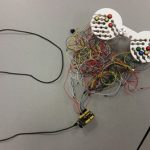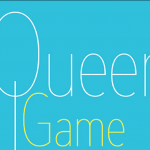first person
Applied Media Theory, Critical Making, and Queering Video Game Controllers

This essay explores intersections among queer theory, critical making methodology and inclusive design through a research creation piece that aims to problematize normative video game controller schemes.
Being the Asterisk: Noah Wardrip-Fruin and the Future of Game Studies

What is the connection between how computer games work and what they mean? What do we do with games and what do they do to us? In its exploration of these questions, Stuart Moulthrop sees Noah Wardrip-Fruin’s How Pac-Man Eats (MIT Press, 2020) as helping to urge game studies in a productive new direction: one that critically traces interactions between games and the broader culture in which they're embedded. More specifically, he observes some of the ways Wardrip-Fruin’s work links “technē to social purpose”, and thereby “re-engages questions of value and justice”. This, he contends, is part of what distinguishes this author—"a scientist who is also a socially aware literary writer", as he approvingly puts it—from many of the “anatomists” with whom he founded this developing field.
What is Queer Game Studies?

Addressing a lacuna in games studies, Jason Lajoie makes a case for why a queer games studies is needed, and he shows how these two areas of study are united in Bonnie Ruberg's and Adrienne Shaw's collection.
“Bad Disruption”

ebr Associate Editor Lai-Tze FAN responds to Dani Spinosa's review of llegal Literature: Toward a Disruptive Creativity, by David S. Roh.
Love Will Tear Us Apart, Again: Tupitsyn Art Review
McKenzie Wark explores the work of Masha Tupitsyn as a pathway into the conditions of life in the 21st Century, somewhere above (or below) the framework of mediated experience, even beyond the limits of what we often call "theory." With Tupitsyn, Wark troubles the current stasis of representation that stultifies thought in this age of unrepentantly industrialized culture, not by turning us away from the spectacle, but by smashing right through it, picking up its pieces, and discovering new things in the wreckage.